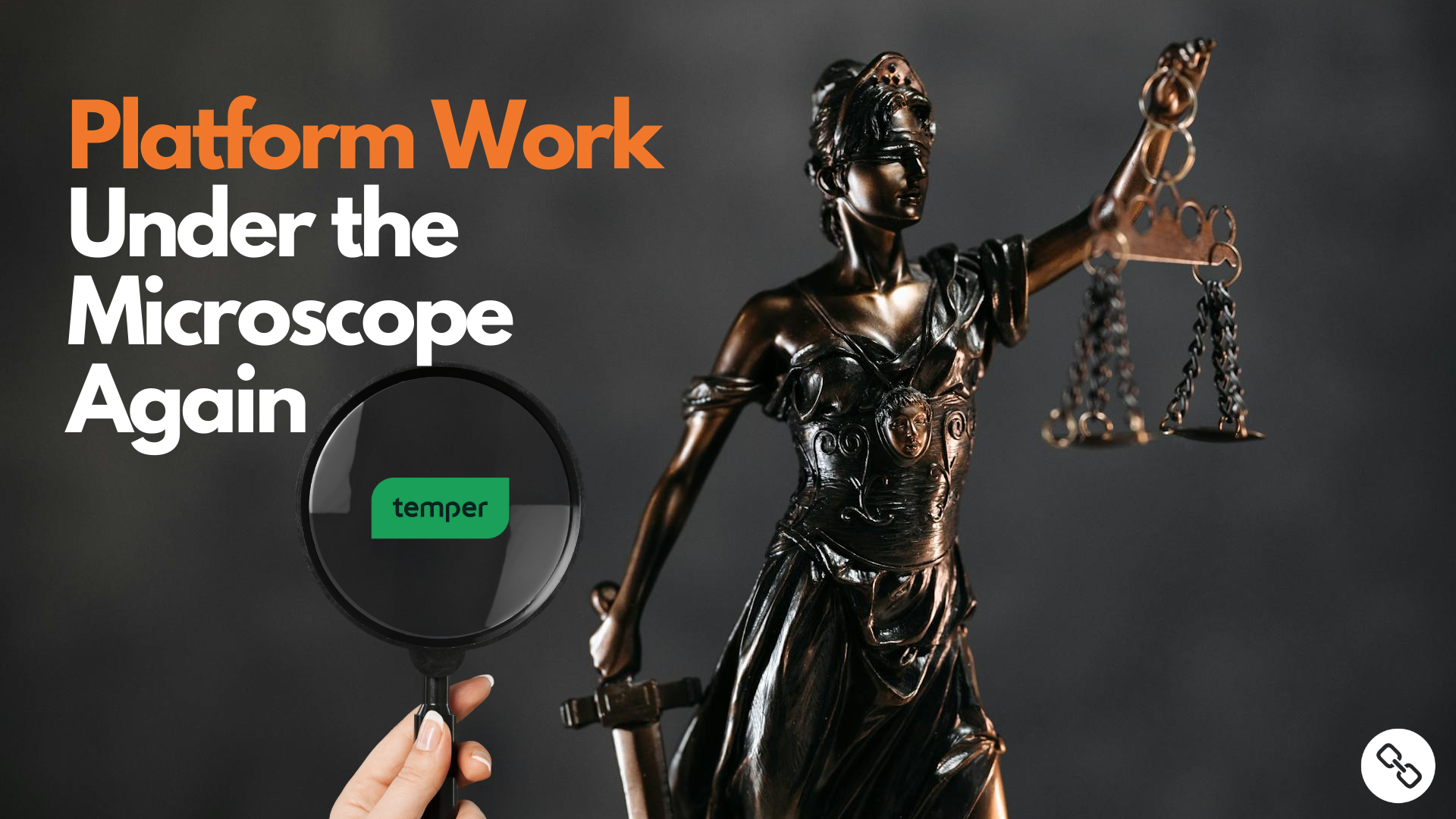Platform work under the microscope again
Temper is not a staffing agency (but that doesn’t mean all workers are self-employed)
On July 10, the Amsterdam District Court made a notable and long-awaited ruling: Temper is not a staffing agency, and workers who work through Temper are not temp workers. This is an interesting decision, but it can also lead to misunderstandings. This ruling does not mean that those who work via Temper should necessarily be classified as self-employed. The Court determined that Temper is not their employer. However, the Court did not rule out the possibility that these workers could be considered employees of Temper’s clients. That possibility remains very much alive!
Classifying employment relationships
Nevertheless, this ruling is relevant for classifying employment relationships in the platform economy. The Court based its decision on the criteria previously set by the Supreme Court in the Deliveroo judgment. In this specific ruling, those criteria are as follows:
Formal employer authority: This means that a temp employer has the right to give instructions and supervise the work performed by the worker. In this situation, however, it was the client, not the temp employer, who exercised the actual employer authority. This lack of formal employer authority is a crucial element that is missing in a temp relationship.
Wage payment: The client pays wages to the workers, not Temper, which is also an important feature of a temp agreement. Under Dutch law, the temp employer must be responsible for paying wages to the employee.
Replacement: Workers are hardly obliged to perform the work personally. They can easily be replaced by someone else.
Not only in this judgment, but also in a broader context, lower Dutch courts frequently apply the Deliveroo criteria as set out by the Supreme Court. It’s noteworthy that the Supreme Court does not consider the ‘embedding’ of work within the organization as a decisive criterion for employer authority and thus an employment relationship. This embedding criterion has led to many questions and criticisms in the draft law VBAR.
Given the social and political significance, the Amsterdam Court of Appeal has referred preliminary questions to the Supreme Court in the Uber/FNV case. These questions focus, among other things, on the definition of ‘entrepreneurship’ and how it should be understood. It is expected that the Supreme Court will make an important ruling at the end of July in response to these preliminary questions.
To be continued!
Note: If your organization hires freelance lawyers and attorneys, it is crucial, especially in light of the resumption of fiscal enforcement from 1-1-2025, to arrange this properly. If you are not yet working with LawyerlinQ for this, feel free to ask us for advice.

